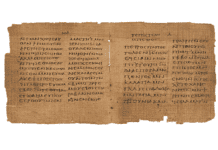You were raised in the Black Pentecostal tradition but left for a time to attend, and preach in, white evangelical churches. What was it that attracted you to these churches and to affirmation from white Christians and church leaders?
I played football at Clemson (University). Those who have the closest proximity to athletes are not from Black, Latino, Asian American traditions of Christianity … (but) conservative, white and evangelical. Those things that are in closest proximity to us oftentimes are those things that we tend to ascribe the highest value. Some of us assimilate just because that’s the space we’re in. Some of us have always existed in that space — all we know is being in spaces dominated by whiteness, and it has become our norm. So much of my assimilation was not because that was just the space that I was in, but it was because that’s the space I believed that would make me feel like I mattered.
White acceptance, white rewards, white protection — so many of these things sit at the heart of what happens with many young Black people going to white college campuses. Either to escape or to survive or to thrive, we feel that the closer we are to whiteness and to white people, the closer we are to Jesus. The closer we are to them, the closer we are to success. The closer we are to them, the closer we are to protection.
What brought you back to the Black church?
A lot of it was through the murders of Alton Sterling, Philando Castile and the way the white evangelical church that I was in responded to those moments and to many of us Black people who were in that space.
My wife helped me because she challenged me to help me see myself for who I really was and the ways in which I was hurtful and harmful and the ways in which I devalued and distanced myself from Black people. My wife is a part of that, but also so much of what I was reading, whether it was through Black theology, womanist theology, Black feminist practice, Black studies and things like that.
When I went through my change and I needed to leave the white church, I knew I had to give myself fully to the study of Black life and Black literature in particular.
In addition to sharing your own stories, you write about books by Audre Lorde, James Baldwin, Toni Morrison and James Cone alongside the biblical books of Nehemiah and Daniel. How have Scripture and Black literature shaped your faith?
My work right now at (the Candler School of Theology at Emory University) is centered around Black texts, theory and theology. I’m writing my thesis on James Baldwin, and my central question is, “What can we gain by doing a close theological reading of Baldwin’s literature? What can we learn about faith, embodiment, performance, gender, sexuality, politics, theology?”
I want to do the work of a theologian that takes seriously reading Black texts as sacred texts and Black life as sacred history. In the Bible, these books — this anthology, this collection of books — have people’s names, and we receive those names as divine revelation to teach us something about life, to teach us something about God, to teach us something about the world we live in, to teach us something about the stories that give us meaning: Nehemiah, Isaiah, Daniel, Hosea.











